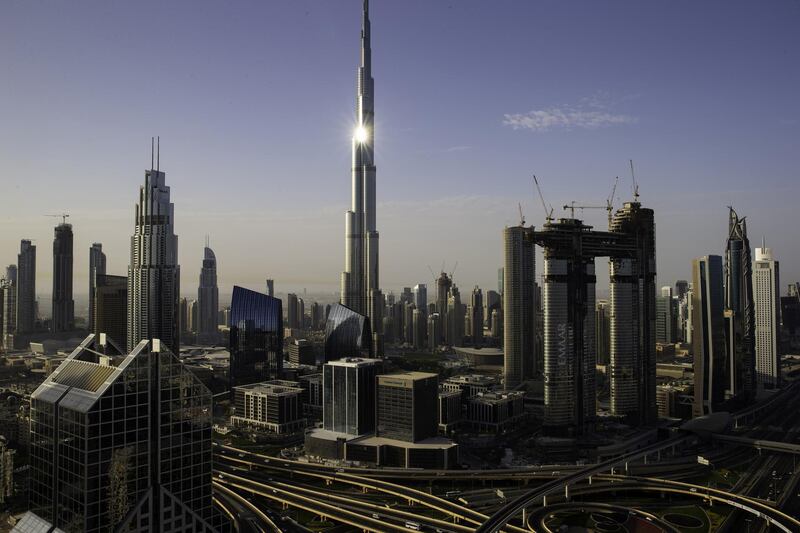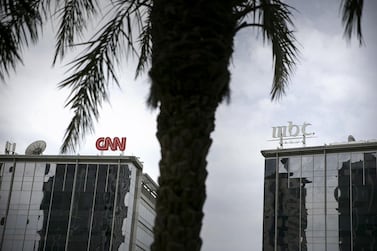Dubai’s economy is expected to expand at a faster pace this year outgrowing in levels achieved in 2018, despite headwinds from a global economic slowdown, as the emirate continues to implements policy initiatives and investments measures under its 50-year Charter.
Gross domestic product is expected to grow 2.1 per cent in 2019, further accelerating to 3.8 per cent and in 2020, and moderating slightly to 2.8 per cent in the following year, according to Dubai Economic Department, the government body that sets and implements the government’s economic agenda.
The emirate saw GDP growth of 1.9 per cent in 2018, driven by investments in infrastructure and growth in trade, which contributed 18.1 per cent of the total growth achieved by the emirate to Dh398.13 billion, according to Dubai Media Centre, which cited Dubai Statistics Centre data from earlier this year.
“Dubai government is currently engaged in developing new growth drivers to be fully prepared for future changes in the global and regional economic landscapes, including where matters concern artificial intelligence, the Internet of Things, and the Fourth Industrial Revolution,” DED said.
“Initiatives are underway to attract private-sector investments in new innovative sectors and expand to regional and global markets. As such, the projected growth rates reported above represent a low-case scenario for future growth.”
Economic momentum had already picked up pace at the beginning of this year with a surge in new business licences, which rose 29 per cent 6,709 during the first three months of 2019. Dubai's Composite Business Confidence Index (BCI) climbed up 10.2 points in the first quarter from the level a year ago, and 7.7 points from the last quarter of 2018, indicating a marked improvement in business prospects and overall sentiment, DED noted. The quarterly BCI survey is conducted by the department.
The emirate, which has one of the most diverse economies in the Arabian Gulf region, relies mainly on the non-oil sector for economic growth. The real estate sector, which has softened in recent years on oversupply and a three-year oil price slump that began in mid-2014, is expected to bounce back as economic activity gathers momentum.
Dubai has also introduced major policy initiatives, reducing the cost of doing business, boosting SME liquidity and supporting the tourism and the real estate sectors, which have resulted in a 41 per cent year-on-year rise in foreign direct investment in 2018 to Dh38.5bn.
In January, the emirate approved its 2019 budget, with higher revenues targets, setting expenditure at Dh56.8bn, a slight rise from a year earlier. The government maintained the size of this year’s budget equivalent to its record 2018 budget.
The emirate is preparing to host Expo 2020 and is also investing heavily on infrastructure ahead of the global fair. This year’s budget includes an allocation of Dh9.2bn earmarked for infrastructure projects only.
The contribution of Expo 2020 Dubai to the emirate's GDP over the period 2013-2030 has been estimated at Dh122bn, according to an EY study. During the period 2013 to April 2021, the construction and delivery of the Expo site is expected to contribute Dh38bn with direct benefits to the construction, business and financial services, transport, storage and communication sectors.
The event itself is expected to add another Dh23bn to the emirate’s GDP, it added.







